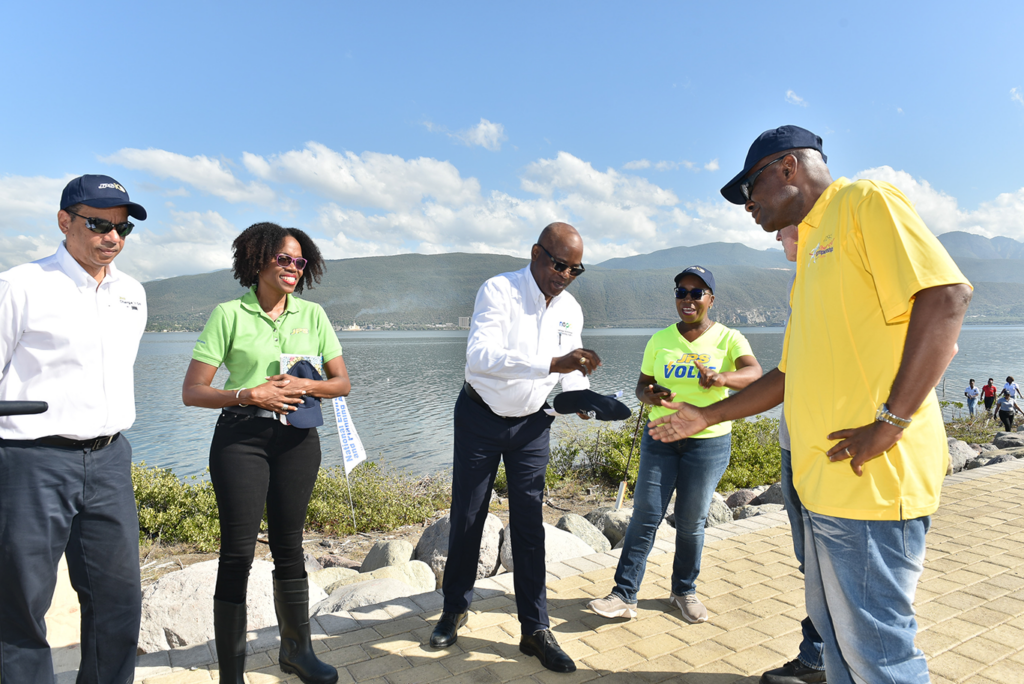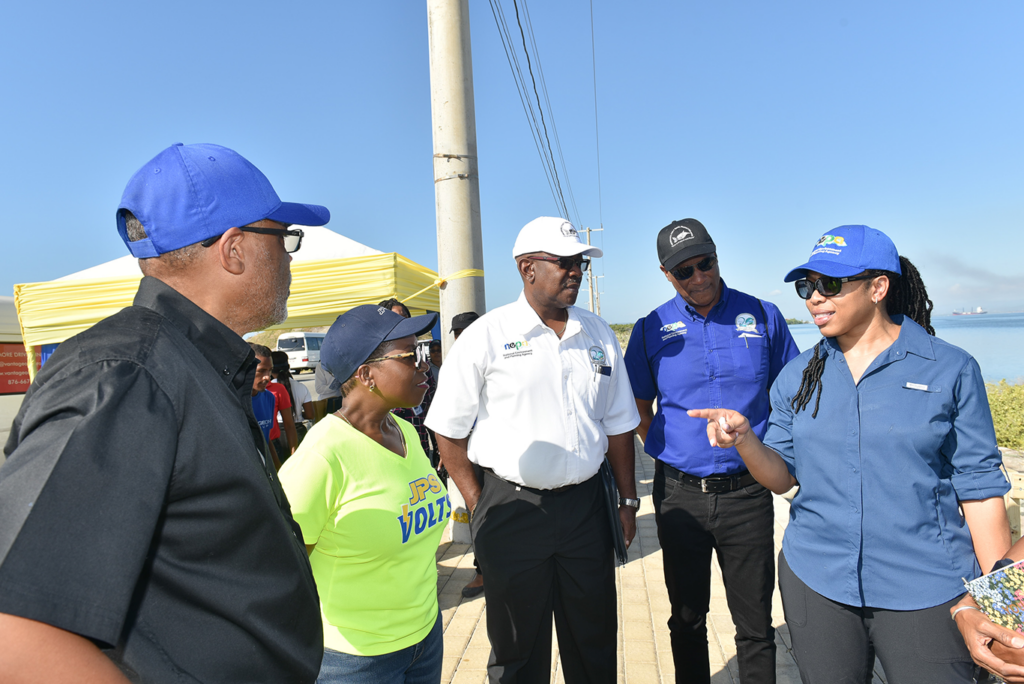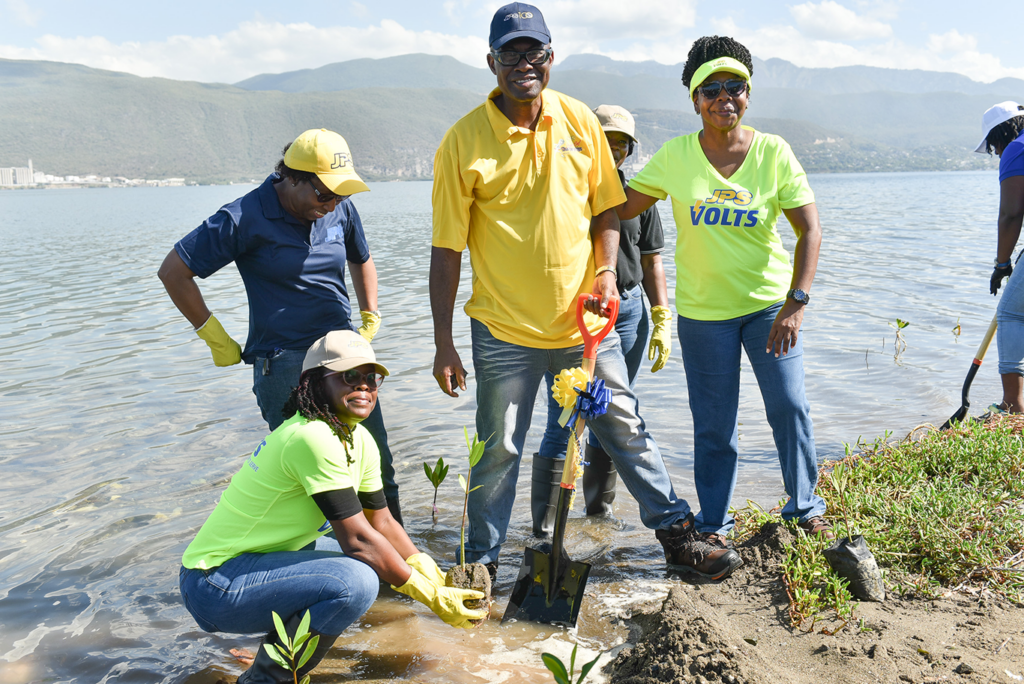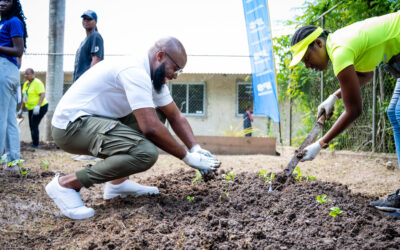(Kingston, February 2, 2023)
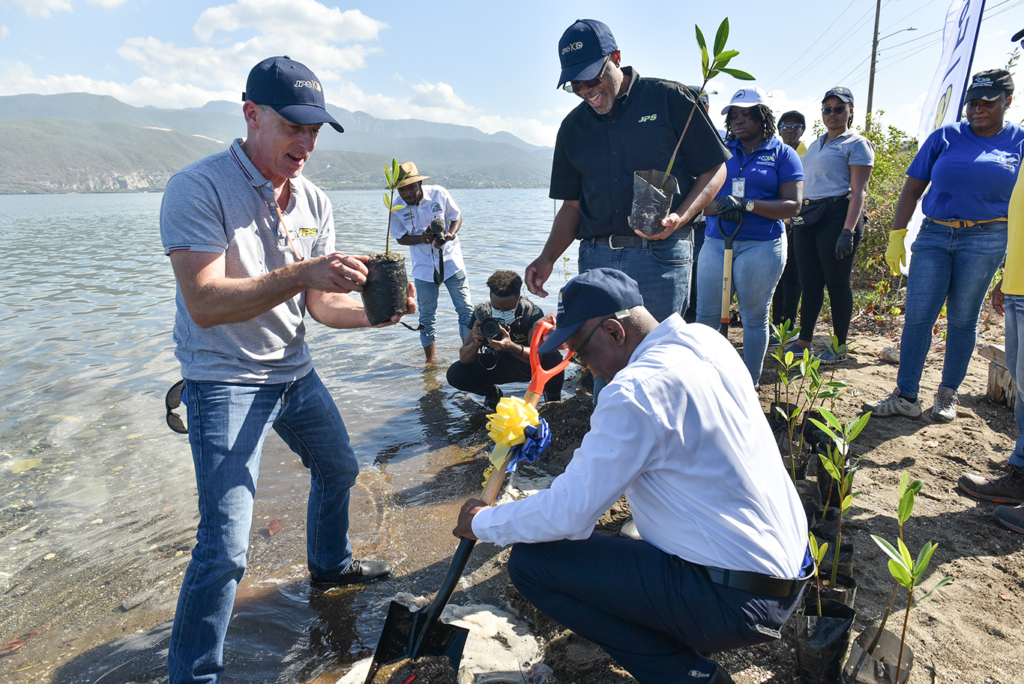
The JPS Foundation has become the first corporate entity to sign on to the National Environment & Planning Agency’s (NEPA’s) Adopt-a-Mangrove Programme. The energy Company has adopted the mangroves in the Sturridge Park, Palisadoes-Port Royal Protected Area, situated along the Palisadoes strip, and will invest JMD7M over the next 5 years to restore the mangroves lost due to human interference and pollution from the Kingston Harbour. The commitment was marked by a tree planting exercise on World Wetlands Day (Feb. 2), with the joint planting of 50 Red Mangrove saplings along the strip. The involvement comes as part of the outworking of JPS’ core belief in environmental stewardship and sustainability.
Mr. Michel Gantois, President & Chief Executive Officer (CEO) of JPS, speaking on the occasion, noted that JPS was proud to be a leader in the protection of the livelihood of people in the community, for generations to come. He also recognized the measures taken so far by the Government of Jamaica to prevent waste material from getting into the Kingston Harbour and negatively impacting the mangroves along the Palisadoes strip. “We hope this is the start of a much larger effort,” he said, hinting at other environmental projects to come.
Meanwhile, Mr. Peter Knight CD, JP, CEO of NEPA, noted that the JPS/NEPA collaboration was a signal of a pioneering exercise. “The JPS Foundation is now the leader in pioneering with us,” he affirmed. Importantly, the NEPA CEO noted that “Jamaica is a signatory to the Ramsar Convention, which focusses on the protection, conservation and wise use of wetlands – this doesn’t mean you can’t have developmental activity.” He further pointed out that the Palisadoes–Port Royal Protected Area has been a protected area since 1998, and that now, this new partnership would significantly strengthen the programme’s effectiveness.
Mr. Gary Barrow, JPS’ Chief Operating Officer, also addressed the group, emphasizing the need to rescue the environment from the degradation it had suffered over the years. Informing the audience that there was a time when the Palisadoes strip was a popular beach area and when the famous Gun Boat Beach had clear and beautiful waters, the COO implored well-thinking Jamaicans to not only address the immediate crisis, but also to address the systemic issues which have resulted in the present circumstances. “A critical part of this is public education – starting with the youth and their parents,” he asserted. “We commit to going upstream to ensure there’s an understanding of how our actions impact our environment and our lives,” he stated.
Mr. Ainsworth Carroll, NEPA’s Director of Planning, Projects, Monitoring, Evaluation and Research, also emphasized the role of the restoration activity, in fulfilling local commitments, namely Jamaica’s Vision 2030. He further pointed out the critical benefits of mangroves, including: mitigating the effects of climate change by preventing tidal erosion from rising sea levels; protecting our coastline from increasing storm activities; and providing a valuable nursery for many species of fish and other marine species; thereby providing a source of sustainable livelihood for our fisherfolk. Mangroves also generate oxygen and remove carbon dioxide from the atmosphere, serving as the lungs of the earth.

